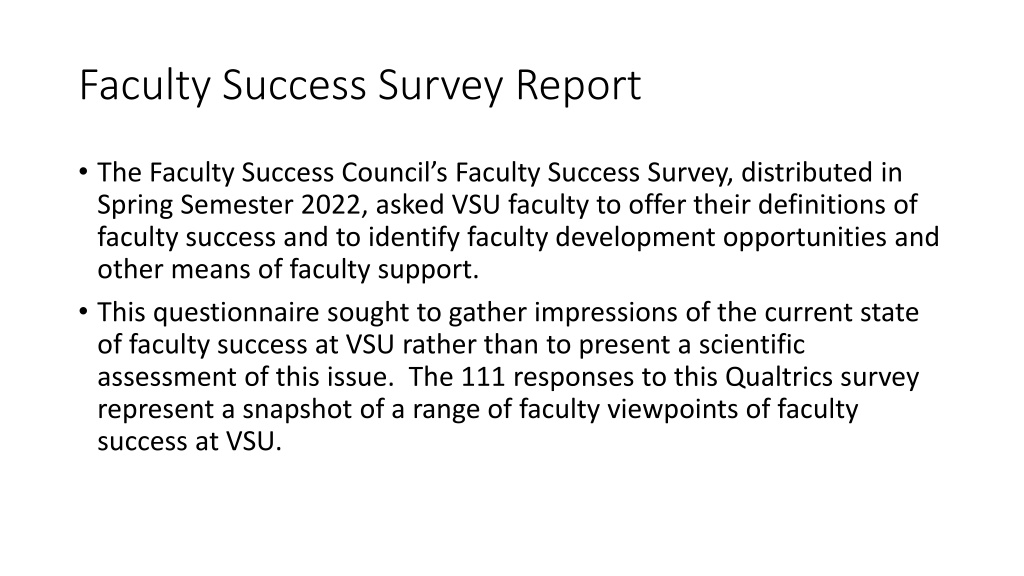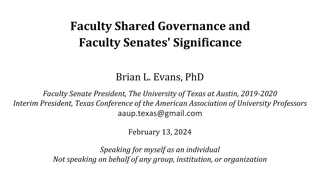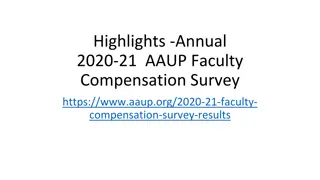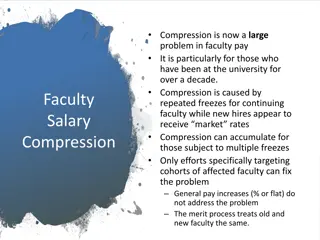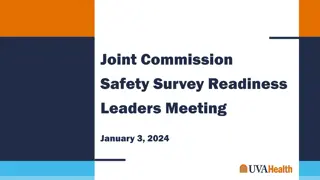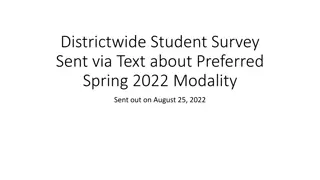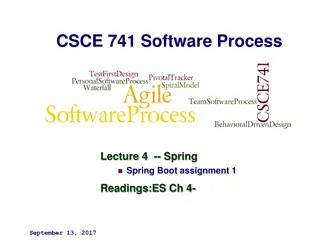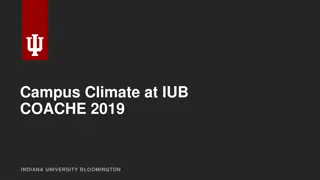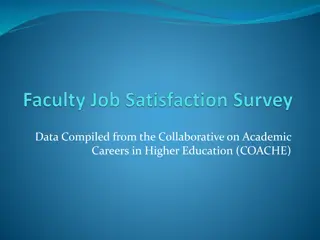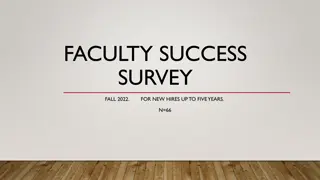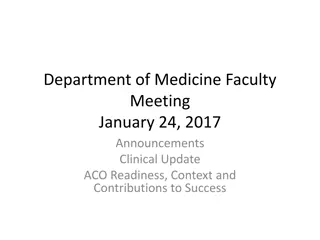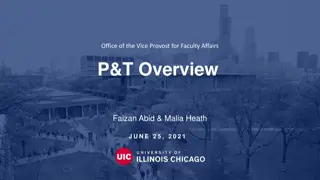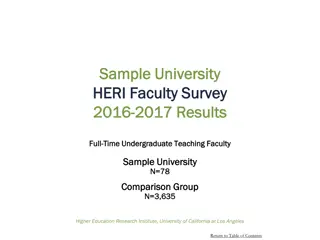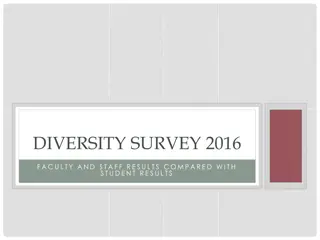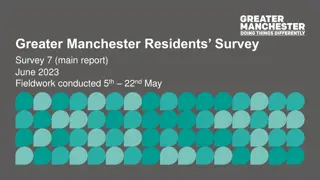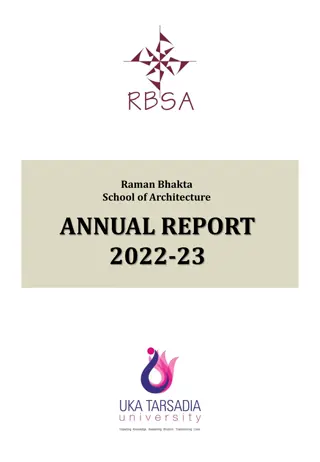Faculty Success Survey Report Spring 2022 at VSU
VSU's Faculty Success Council conducted a survey in Spring 2022 to gather faculty perspectives on defining faculty success, identifying development opportunities, and support needs. The survey received 111 responses, offering a range of viewpoints. The findings shed light on key indicators of faculty success, desired developmental opportunities, and support requirements as outlined by faculty members. The report provides insights for enhancing faculty success at VSU.
Download Presentation

Please find below an Image/Link to download the presentation.
The content on the website is provided AS IS for your information and personal use only. It may not be sold, licensed, or shared on other websites without obtaining consent from the author. Download presentation by click this link. If you encounter any issues during the download, it is possible that the publisher has removed the file from their server.
E N D
Presentation Transcript
Faculty Success Survey Report The Faculty Success Council s Faculty Success Survey, distributed in Spring Semester 2022, asked VSU faculty to offer their definitions of faculty success and to identify faculty development opportunities and other means of faculty support. This questionnaire sought to gather impressions of the current state of faculty success at VSU rather than to present a scientific assessment of this issue. The 111 responses to this Qualtrics survey represent a snapshot of a range of faculty viewpoints of faculty success at VSU.
Faculty Success Survey The following slides show the summaries of the answers to open- ended questions by the FSC subcommittee that reviewed the total responses: Anita Davis, Katherine Adams, Adam Wood, Emily Rogers, Kate Warner, and Deborah Paine. The concluding slides offer starting points for further discussion of the survey feedback and identifies the FSC representatives.
Faculty Success Survey Questions Faculty success is multi-dimensional and does not look the same for each faculty member. However, an over-arching definition can provide direction and help us refine our goals. Given this, what are some key indicators you believe should be included in VSU s definition of faculty success? If VSU were to implement a faculty development model that would help you make progress towards faculty success as you define it, what developmental opportunities do you think the model should include? What content or topics should be included? What kinds of trainings or professional development activities work best for you? Please select all that apply. What type of support do you need to foster faculty success, as you define it? Please let us know any additional thoughts about your ideal model of faculty success.
What is your faculty rank at VSU? (Optional) What is your faculty rank at VSU? (Optional)
In which college or unit is your main faculty In which college or unit is your main faculty assignment? (Optional) assignment? (Optional)
What kinds of trainings or professional development activities What kinds of trainings or professional development activities work best for you? work best for you?
Dr. Davis The complexity of faculty talents and intellect dictates the need to recognize and challenge homogenous systems of faculty employment, support, and evaluation. This survey indicates that support and evaluation processes often fail to bring about faculty success and work life satisfaction. This survey also indicates failure to address the assets and desires of students, our primary constituents, who invest in our institution expecting new career and life satisfying opportunities.
Dr. Adams Faculty success means Excellence and fulfillment in the areas of teaching, scholarship, and service An overall sense of well - being / work-life balance A sense of team work and morale in the workplace Feeling appreciated and valued by colleagues and administrators Faculty success is supported by . Convenient professional development opportunities Sufficient time and resources to meet the needs of one s job responsibilities Access to practical/instrumental support for tenure and promotions Fostering connections over administrative tasks Collaboration with others Receiving mentorship at all levels of career (early and mid-career) Receiving comparable pay and funding Receiving formative and meaningful feedback to contribute to growth and development
Dr. Wood Implications: Small scale faculty socials with beer/wine/snacks provided this idea emerges out of repeated comments about seeking a greater sense of community and sense of belonging or, as one commenter put it, a desire to be members of a fellowship of scholars. Note that Community was mentioned 19 times and Connection was mentioned 14 times. Faculty mentorship either by discipline or by other choice for junior faculty. Mentor was mentioned 25 times. Mentorship of tenured faculty by administrators to promote leadership potential and professional advancement. Again, Mentor was mentioned 25 times. Increased research/travel funding and/or grant writing workshops. Funding was mentioned 25 times. More humane expectations for research given the high teaching loads and service expectations or, perhaps, workshops that might help faculty develop their research. This one is trickier to quantify as different faculty spoke to it in different ways, but there was a recurring theme of needing more time for scholarly pursuits. I think this also goes to Time which was mentioned 90 times, though in various ways.
Ms. Rogers Determining Faculty Success Many responses express desire for personal and professional growth as a major component of faculty success: Desire for connection and strong relationships with other faculty, within VSU. Feeling you can make a difference Contributions to significant publications and national organizations Autonomy and agency in work, university culture, being seen on campus Need for positive, constructive feedback from above. Healthy work/life balance
Ms. Rogers Support Needed for Faculty Success Possible Administrative interventions: Need for time and other resources (funding, equipment) to be supportive of student development. Ability to fulfill the FEM expectations. Flexibility in faculty expectations some for research, some for service, for example rather than one-size-fits-all expectations for all faculty Clear, reasonable expectations for evaluations Better pay and funding opportunities Possible Faculty Success Council interventions: Regular and small-group engagement with other faculty Mentoring Inclusiveness of all faculty, including non-TT faculty Examples for t&p materials Way/person to offer suggestions to for connections among faculty for research, social support perhaps a BlazeVIEW shell?
Dr. Warner What is Faculty Success: No one size fits all Student success and faculty success are two sides of the same coin Feeling that there is a balance of teaching, scholarship, and service Includes work/life balance Feeling that one s work is seen and valued by colleagues and administration
Dr. Warner How we can we better support Faculty Success: Faculty want more connection and communication with administration Thriving relationships between faculty, students, and administration are indicators of faculty success Fewer administrative duties, Time, & Work-Life Balance Time constraints limit activities like professional development and research Faculty are looking for leadership opportunities Increase the Quality of Relationships and Sense of Belonging Faculty are Looking for Connection and Community Need for Mentor/Mentoring Mentors for both faculty and students is central to faculty success
Dr. Paine Themes that are in our purview and outside of our purview. My lens is product-driven, or maybe, movement forward. Themes I found we can influence: Not a one size fits all definition of success Supporting student relationships Time Mentoring of faculty (peer evaluations) Work-Life Balance Creating a sense of belonging Themes we cannot influence: Pay and additional resources provided by the university Time Work-Life Balance
Discussion: Implications for the Faculty Success Council How to improve connections and a sense of belonging Faculty/Student Faculty/Faculty Faculty/Administration How to improve mentorship of faculty How to improve communication Use of Time & Work-life Balance Recognizing Uniqueness: Getting rid of one size fits all
Faculty Success Council Membership The Faculty Success Council is made up of two members from each college, one from the Center for Excellence in Learning and Teaching (CELT) Board, and one selected by the college s executive leadership. There are additional members from other campus constituencies such as the Department Heads Council, Advisors, and more. The 2021-2022 FSC membership is available here: https://www.valdosta.edu/academics/academic-affairs/faculty- success-council/council-members.php Please contact your college representatives for more information about or to offer feedback on this survey.
